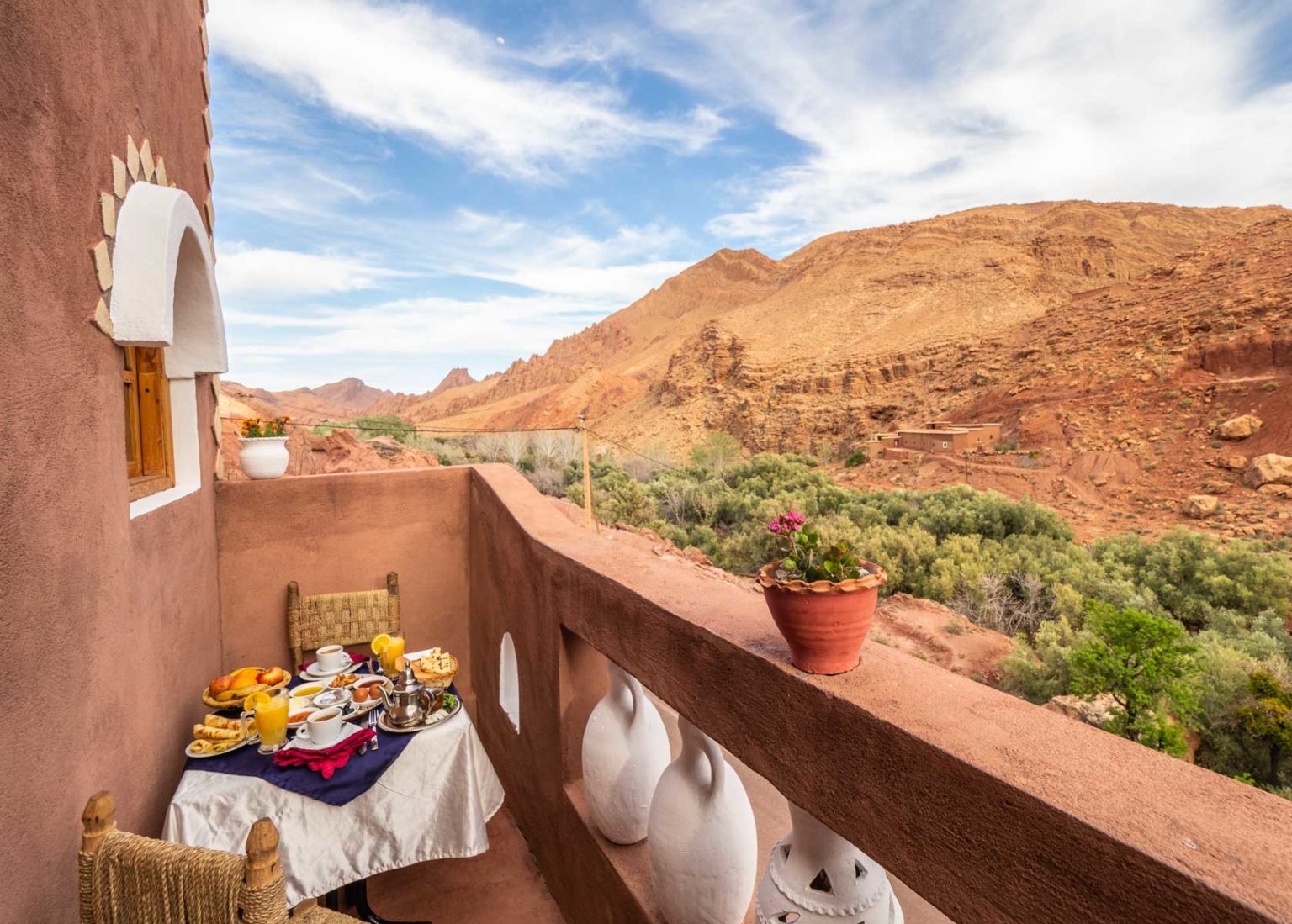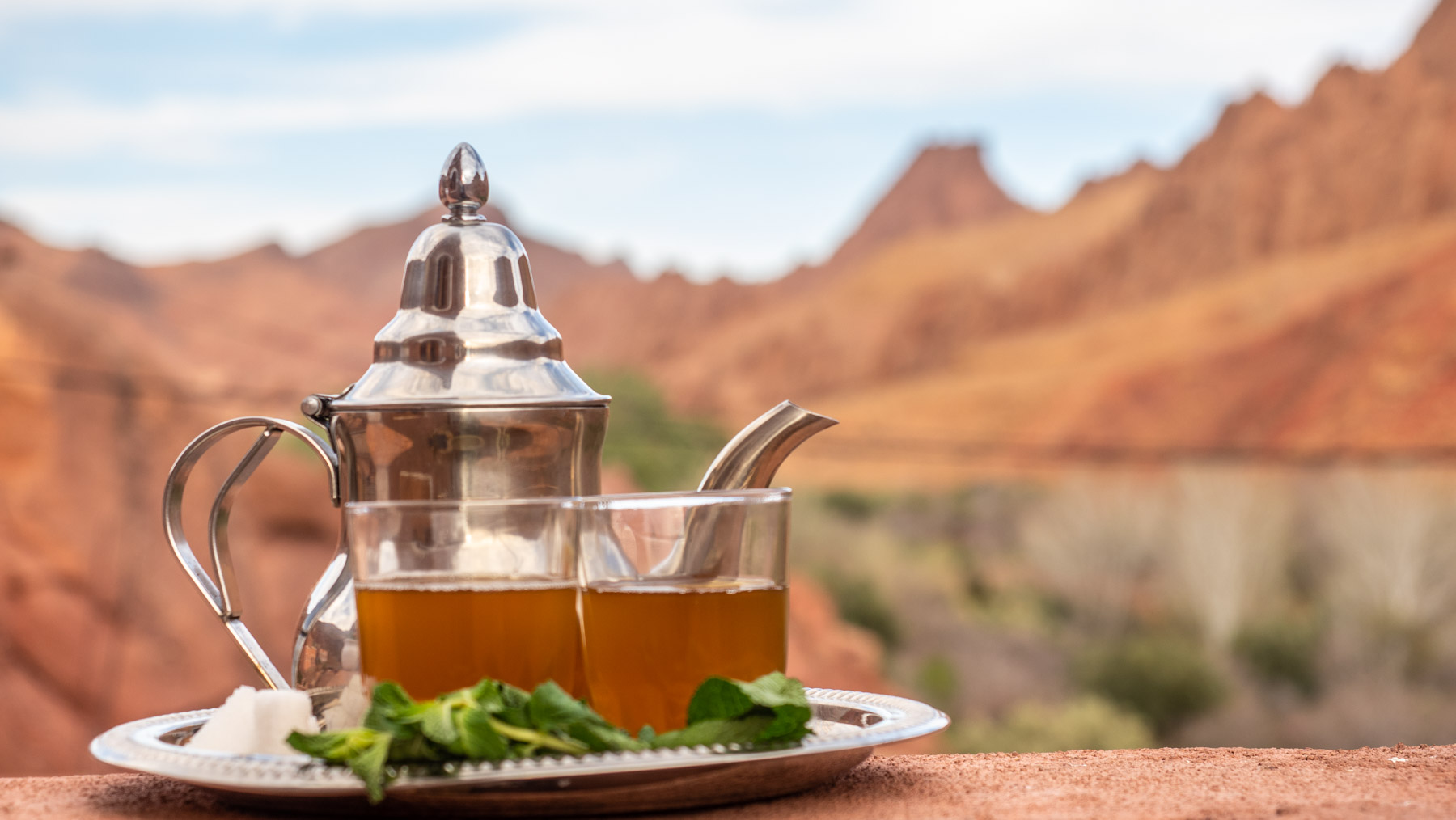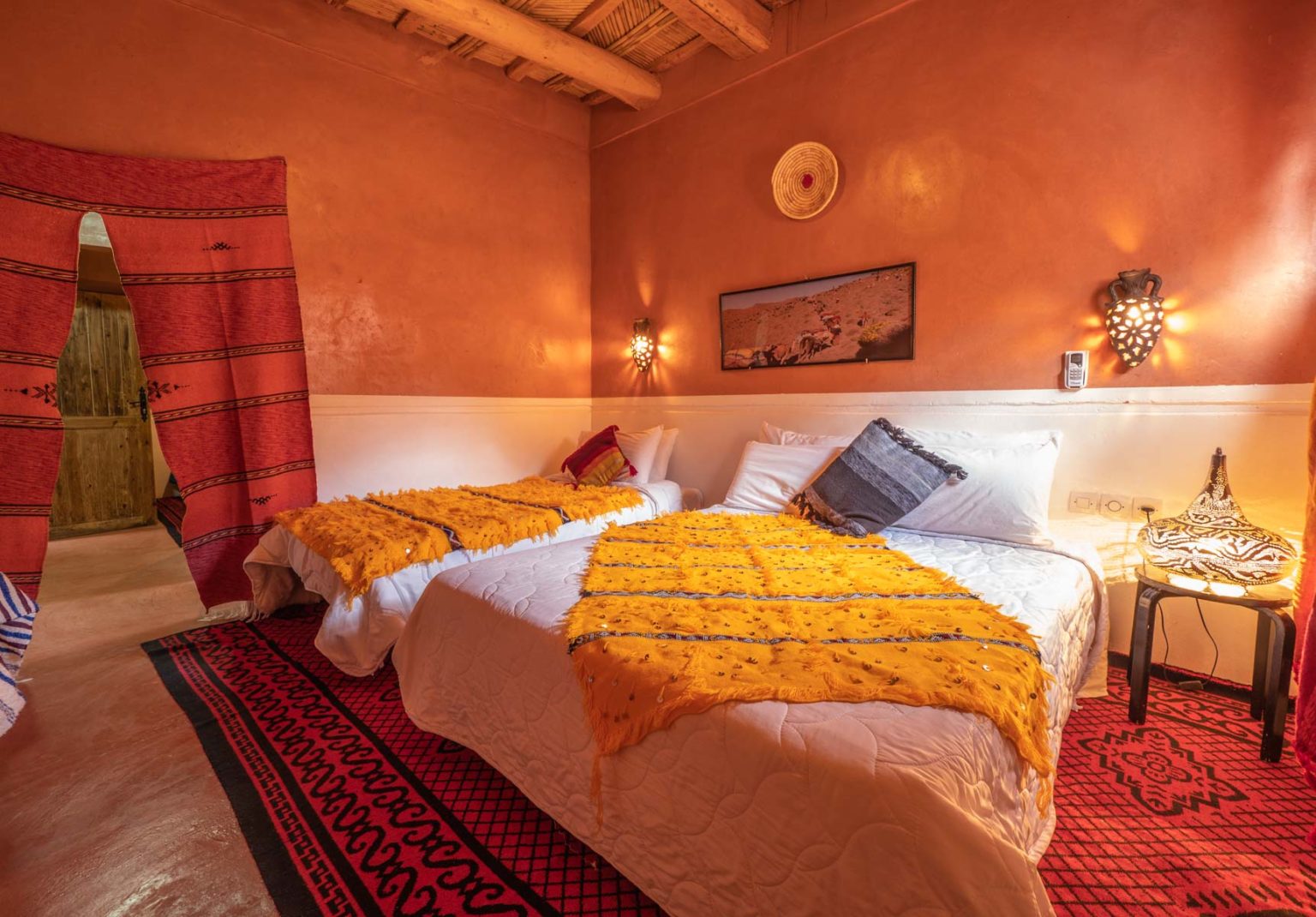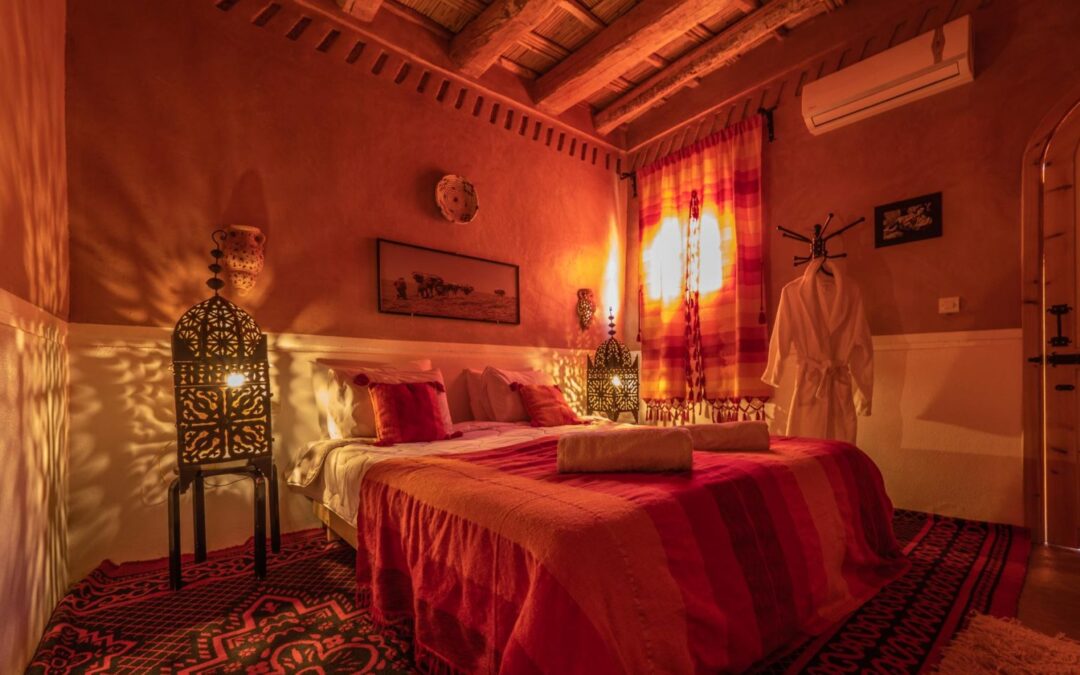
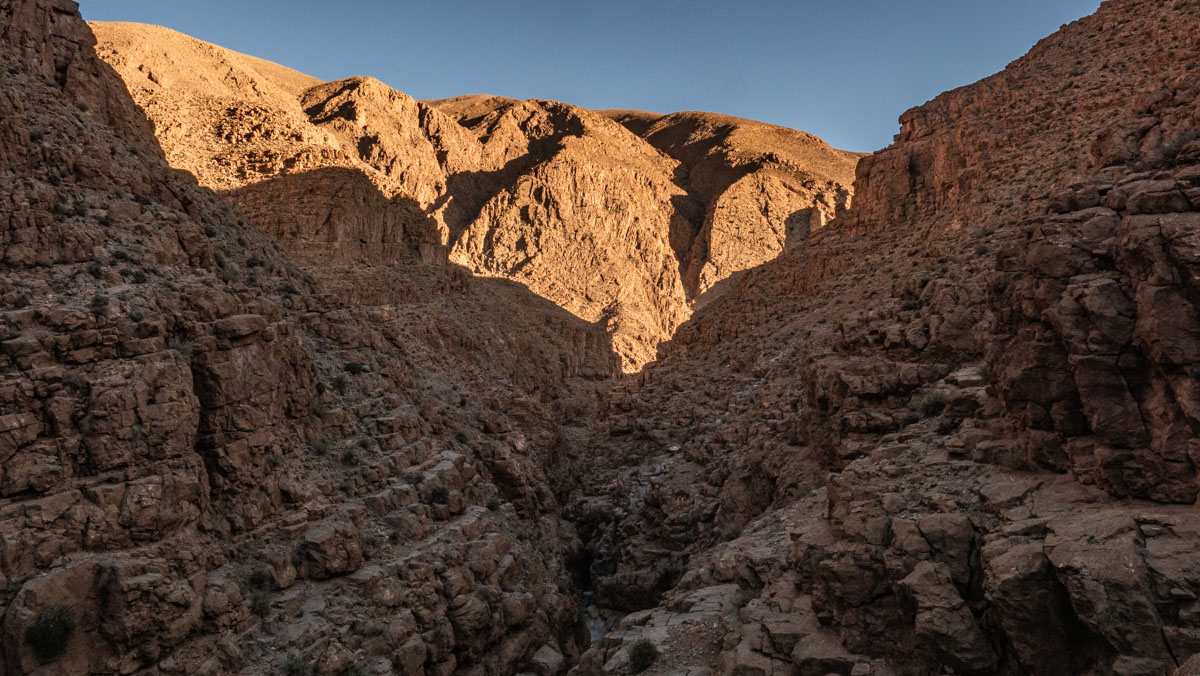
Traditional Berber Markets: A Shopper’s Paradise
When travelers visit Morocco, one of the most exciting experiences they can have is exploring the vibrant and colorful Berber markets. These traditional markets, also known as souks, offer a unique shopping experience that is deeply rooted in Berber culture and history.
Exploring the Souks
One of the best places to immerse yourself in the traditional Berber market atmosphere is at the Auberge Atlas Dades. This charming guesthouse not only provides a comfortable stay but also serves as a great starting point for exploring the nearby markets.
As you wander through the bustling alleys of the souks, you’ll be greeted by a kaleidoscope of sights, sounds, and smells. The stalls are filled with a variety of goods, from colorful textiles and intricate pottery to aromatic spices and exotic fruits.
Unique Handcrafted Treasures
One of the highlights of shopping in the Berber markets is the opportunity to purchase unique handcrafted treasures directly from local artisans. Whether you’re looking for a beautiful rug, a handmade piece of jewelry, or a traditional Berber instrument, you’re sure to find something special to take home as a souvenir.
At Auberge Atlas Dades, guests can learn about the traditional craftsmanship of the Berber people and even participate in hands-on workshops to create their own unique souvenirs. This hands-on experience adds a personal touch to your shopping adventure and allows you to connect with the local culture in a meaningful way.
Traditional Berber Cuisine
After a day of shopping in the bustling markets, visitors can retreat to Auberge Atlas Dades to enjoy a delicious meal of traditional Berber cuisine. The guesthouse offers a culinary journey through the flavors of Morocco, with dishes made from fresh, locally sourced ingredients.
Guests can savor tagines, couscous, and other traditional dishes while taking in the breathtaking views of the Atlas Mountains. The warm hospitality of the staff and the cozy atmosphere of the dining area make dining at Auberge Atlas Dades a truly memorable experience.
Immersive Cultural Experience
Staying at Auberge Atlas Dades not only provides a comfortable and welcoming accommodation but also offers an immersive cultural experience that allows guests to connect with the rich heritage of the Berber people. From exploring the markets to enjoying traditional music and dance performances, every moment at Auberge Atlas Dades is filled with cultural richness.
For travelers seeking a unique and authentic Moroccan experience, a visit to the traditional Berber markets and a stay at Auberge Atlas Dades is a must. Immerse yourself in the vibrant colors, flavors, and traditions of Morocco and create memories that will last a lifetime.

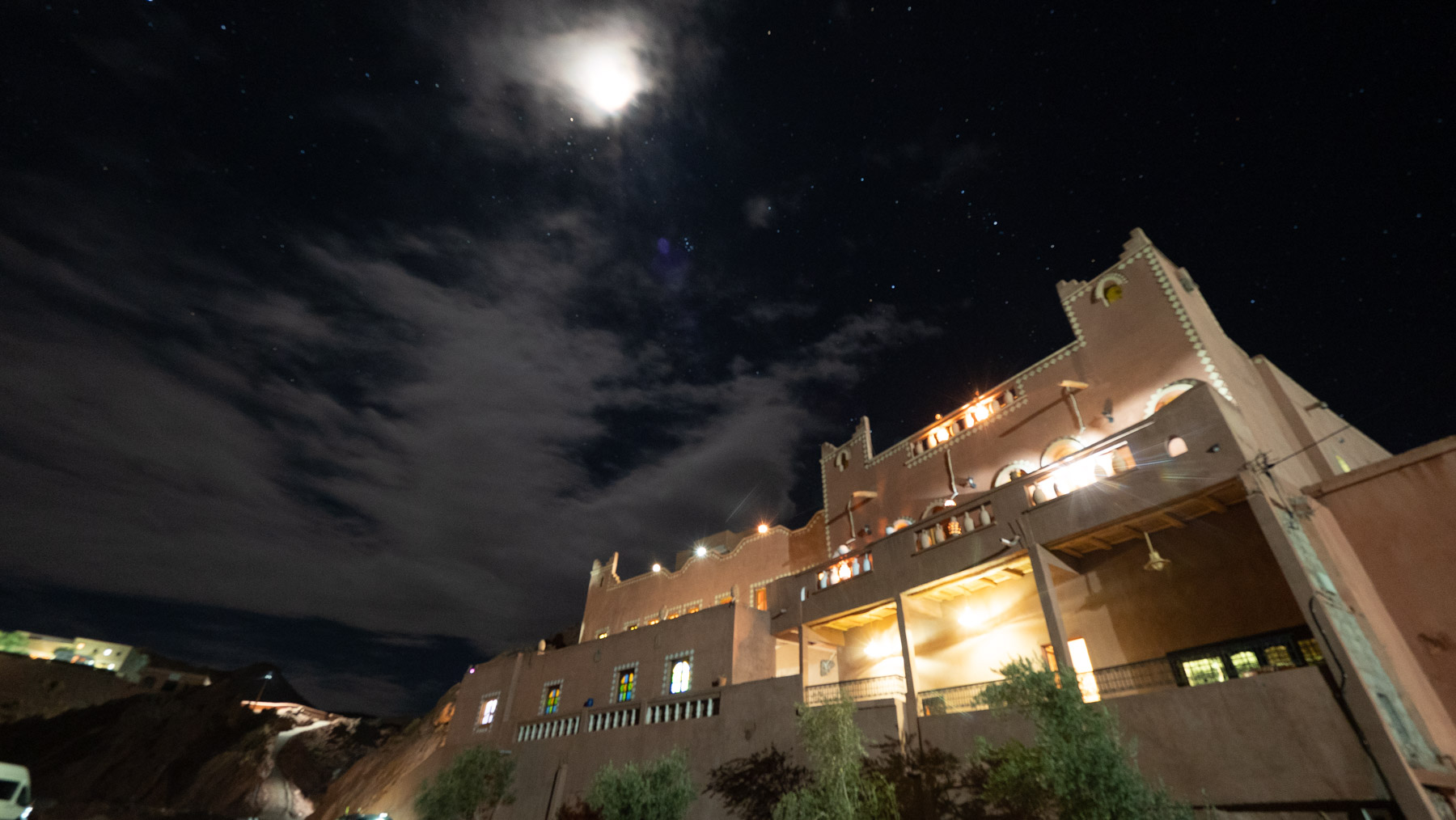
Tips for Exploring Traditional Berber Markets
When it comes to navigating the vibrant Traditional Berber Markets in Morocco, it’s essential to be well-prepared. Here are some expert tips to help you make the most of your shopping experience:
Research and Plan Ahead
Before diving into the bustling markets, take some time to research the different markets available and what each one specializes in. This will help you plan your visit and prioritize the items you want to buy. Knowing a bit about the local culture and customs can also enhance your shopping experience.
Engage with Local Vendors
Interacting with the vendors can be a rewarding experience. Don’t be afraid to strike up a conversation, ask questions about their products, and even try your hand at bargaining. Many vendors appreciate the effort and may offer you a better deal or share interesting stories about their goods.
Inspect Items Carefully
While the markets offer a wide array of unique and beautiful items, it’s important to inspect them carefully before making a purchase. Check for quality, authenticity, and any potential damages. Remember that it’s okay to walk away if something doesn’t meet your expectations.
Master the Art of Bargaining
Bargaining is a common practice in Berber markets, so don’t be shy to negotiate prices with the vendors. Start by offering a lower price than what is initially quoted and be prepared to meet somewhere in the middle. Keep the tone friendly and respectful to ensure a successful deal.
Stay Hydrated and Take Breaks
Exploring the markets can be a tiring endeavor, especially in the Moroccan heat. Remember to stay hydrated by carrying a water bottle with you. Take breaks when needed, relax at a local café, and savor some traditional mint tea to recharge your energy.
Respect Local Customs and Traditions
As a visitor, it’s important to respect the local customs and traditions of the Berber people. Dress modestly, ask for permission before taking photographs, and be mindful of your behavior. Showing respect will not only make your shopping experience more enjoyable but also leave a positive impression on the locals.
Seek Recommendations from Locals
Don’t hesitate to ask locals for recommendations on the best markets to visit or hidden gems to explore. They can provide valuable insights and insider tips that you won’t find in guidebooks. Embracing the local knowledge will enrich your shopping adventure and make it truly memorable.
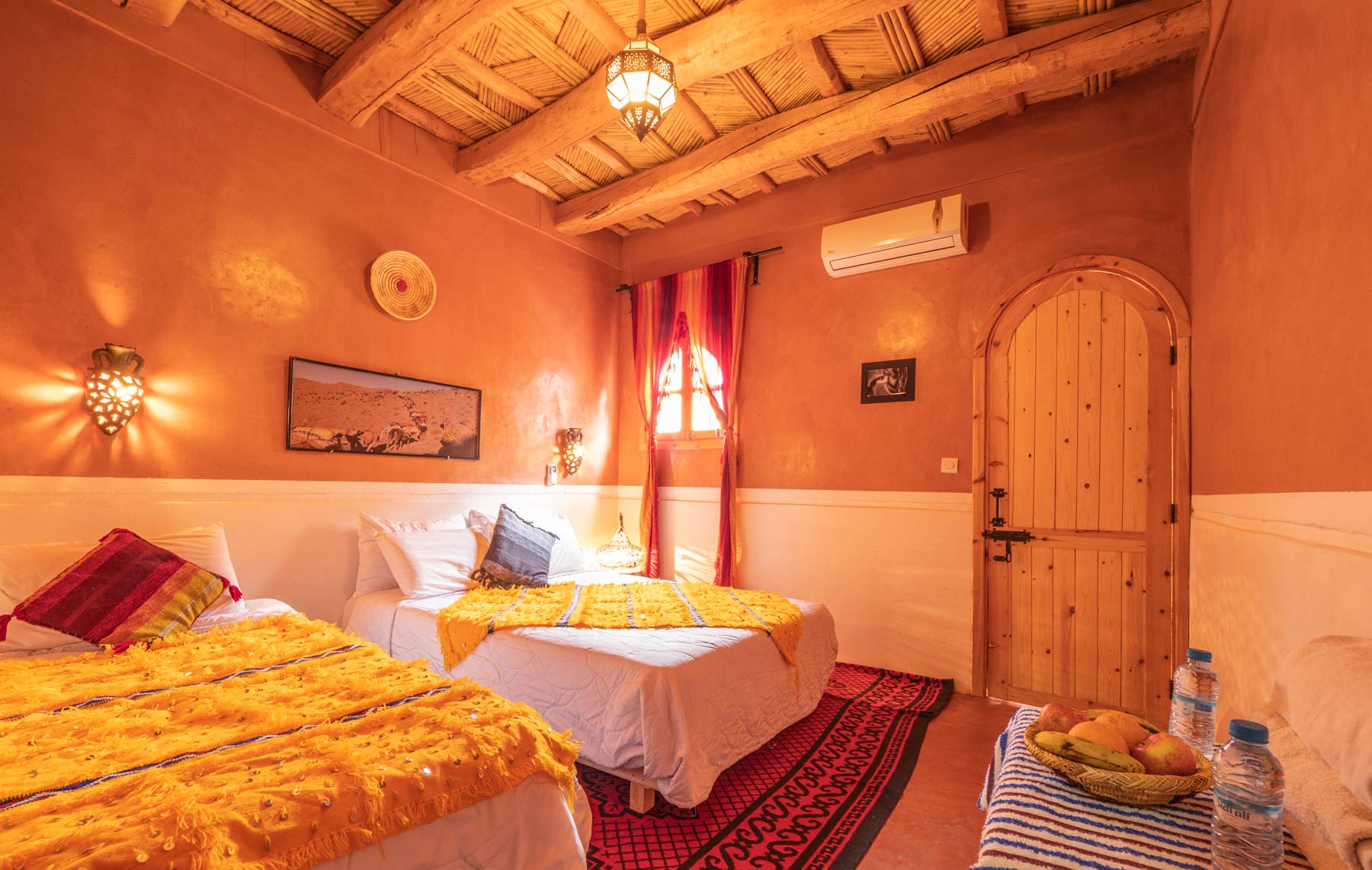
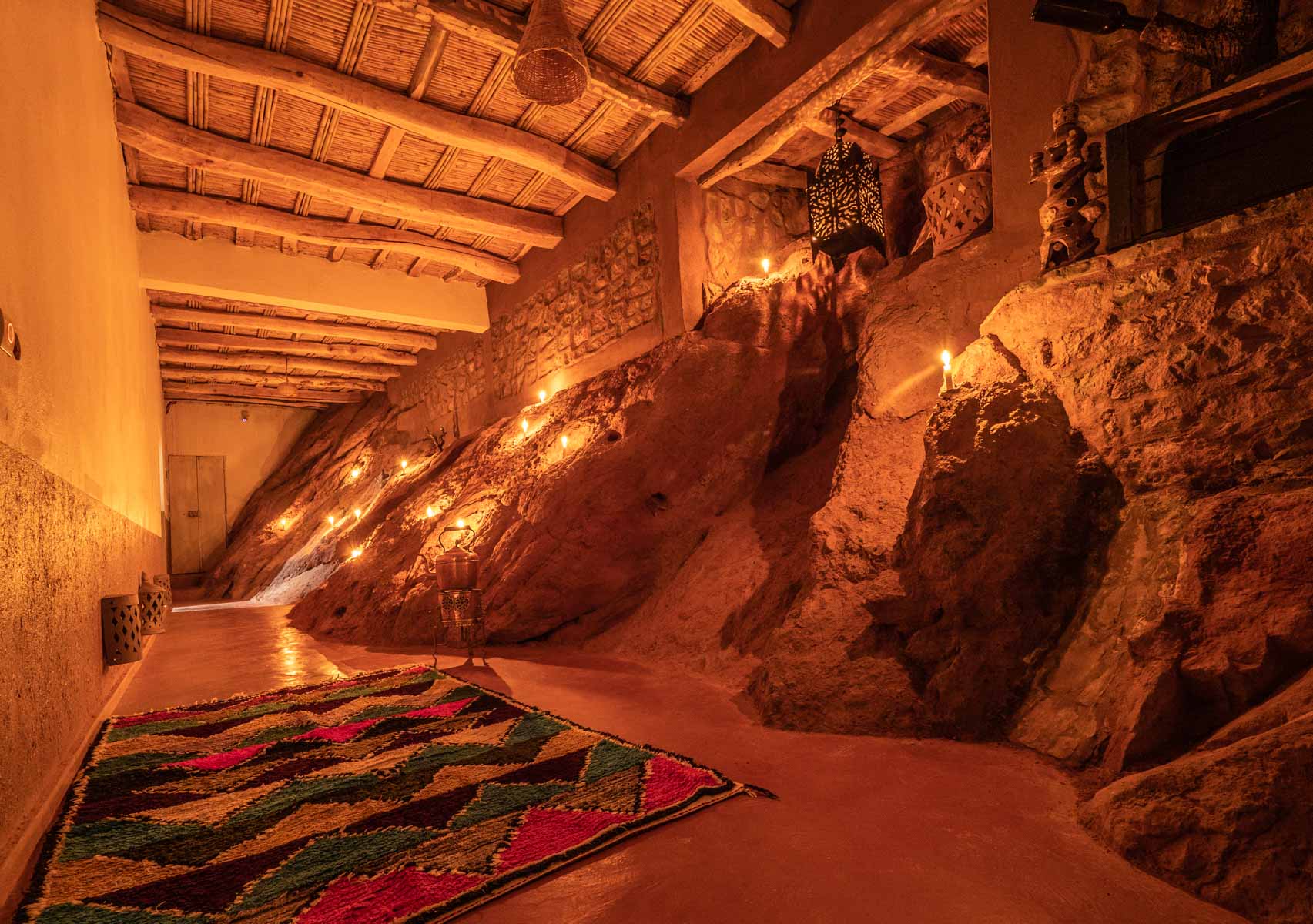
Exploring Traditional Berber Markets in Morocco
When it comes to immersing oneself in the vibrant culture and rich history of Morocco, a visit to the Traditional Berber Markets is an absolute must. These markets, also known as Souks, offer a unique shopping experience that is deeply rooted in the country’s heritage.
Discovering Hidden Gems
As a seasoned traveler exploring the bustling streets of Marrakech or the charming alleys of Fez, you will be captivated by the sights, sounds, and scents of the Berber markets. The markets are a shopper’s paradise, where you can find a plethora of handcrafted goods, including colorful textiles, intricate pottery, and exquisite jewelry.
Engaging with Local Artisans
One of the highlights of visiting the Berber markets is the opportunity to interact with local artisans who have honed their craft over generations. From skilled leatherworkers to talented weavers, each vendor has a story to tell and a unique piece to offer. Engaging with these artisans not only allows you to purchase authentic souvenirs but also fosters a deeper appreciation for the artistry and craftsmanship of Morocco.
Immersing in Berber Culture
Beyond the shopping experience, the Berber markets provide a window into the rich cultural tapestry of Morocco. The vibrant colors, intricate patterns, and traditional designs on display reflect the heritage and identity of the Berber people. By exploring these markets, you are not just buying goods; you are participating in a centuries-old tradition that celebrates community, creativity, and craftsmanship.
Practical Tips for Navigating the Markets
As an expert guide to Morocco, it is essential to equip yourself with some practical tips for navigating the bustling Berber markets. Be prepared to haggle and negotiate prices, as it is a customary practice in Moroccan markets. Additionally, keep an eye out for hidden gems and unique finds tucked away in the labyrinthine alleys. Most importantly, approach your shopping experience with an open mind and a spirit of curiosity, allowing yourself to be swept away by the magic of the markets.

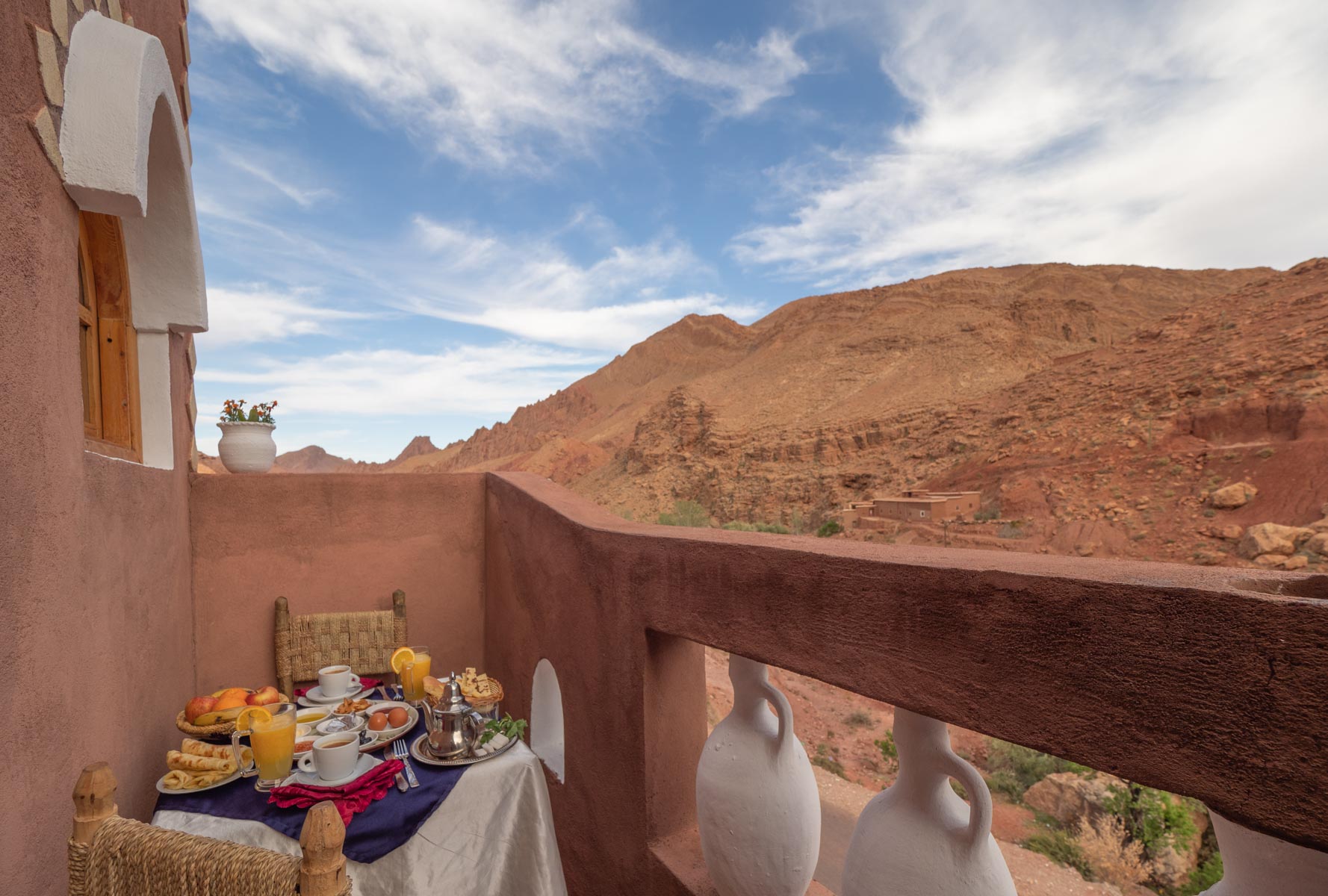
When planning a visit to the Traditional Berber Markets in Morocco, there are several recommendations that travelers should keep in mind to make the most out of their experience. From preparations before the trip to activities during and after the journey, these tips will ensure a smooth and enjoyable adventure.
Before the Trip
Prior to embarking on the journey to the Traditional Berber Markets, it is essential to make some preparations. Researching about the markets, the culture, and the local customs can provide valuable insights and help travelers navigate the bustling marketplaces with ease. Additionally, it is advisable to pack appropriate clothing for the weather and comfortable shoes for walking long distances.
During the Trip
While exploring the Traditional Berber Markets, visitors should remember to bargain with the vendors to get the best deals. It is also recommended to try the local cuisine and interact with the friendly locals to immerse oneself in the vibrant atmosphere of the markets. Moreover, taking photos of the colorful displays and unique products can serve as lasting memories of the trip.
After the Trip
After returning from the Traditional Berber Markets, travelers can reflect on their experiences and share their stories with friends and family. It is also a good idea to organize and display any souvenirs or items purchased during the trip as a reminder of the cultural richness of Morocco. Additionally, writing a travel journal or blog post can help preserve the memories for years to come.
Accommodation Recommendation: Auberge Atlas Dades
For those looking for a unique and authentic lodging experience in Morocco, Auberge Atlas Dades is highly recommended. Situated amidst the stunning Atlas Mountains, this charming guesthouse offers comfortable rooms, delicious local cuisine, and breathtaking views of the surrounding landscapes. Travelers can relax in the traditional Berber-style rooms and enjoy warm hospitality from the welcoming staff.
In conclusion, a visit to the Traditional Berber Markets in Morocco is a must-do for travelers seeking a cultural and shopping adventure. By following these recommendations and choosing Auberge Atlas Dades as a base for exploration, visitors can create unforgettable memories in this shopper’s paradise.
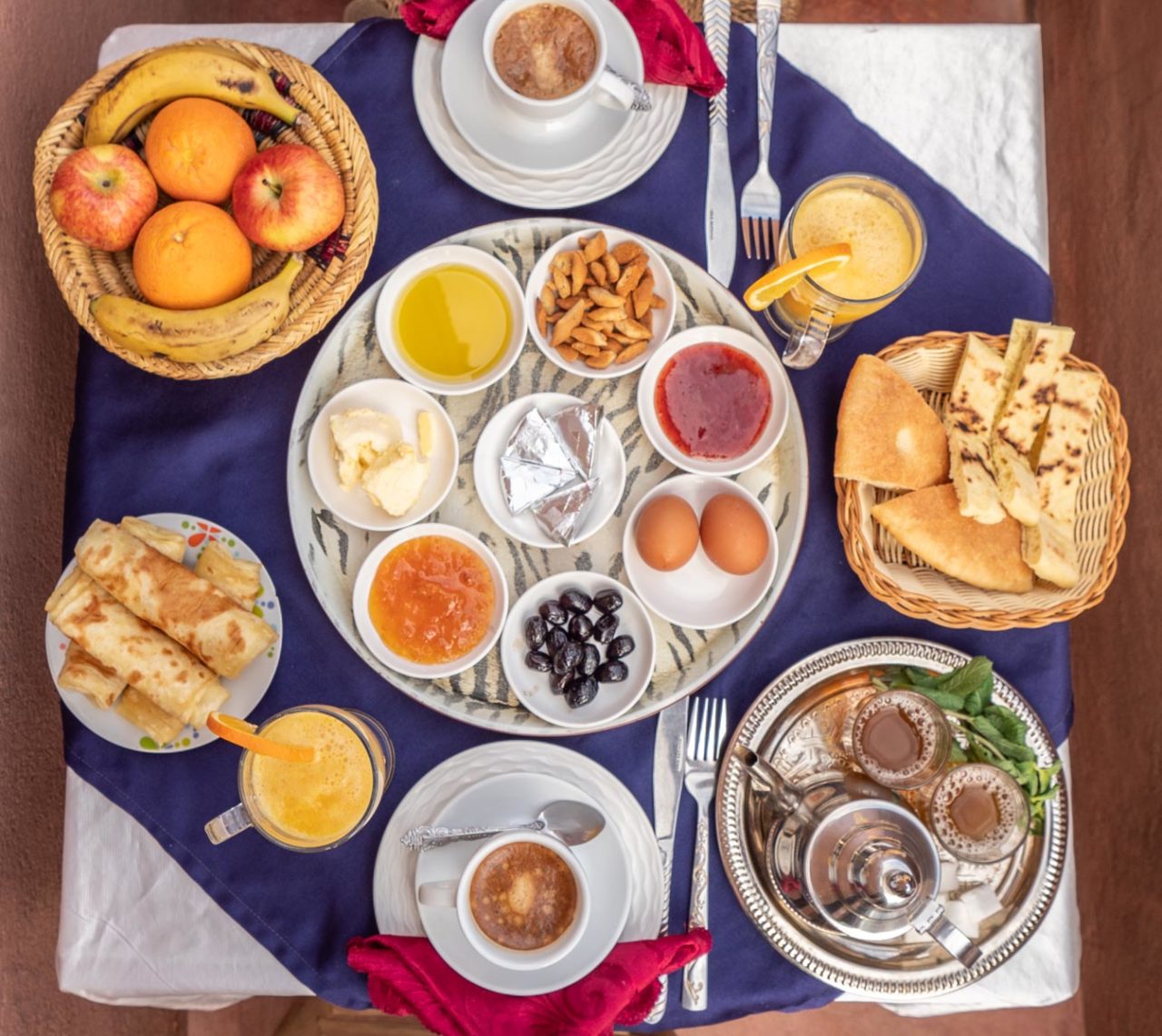


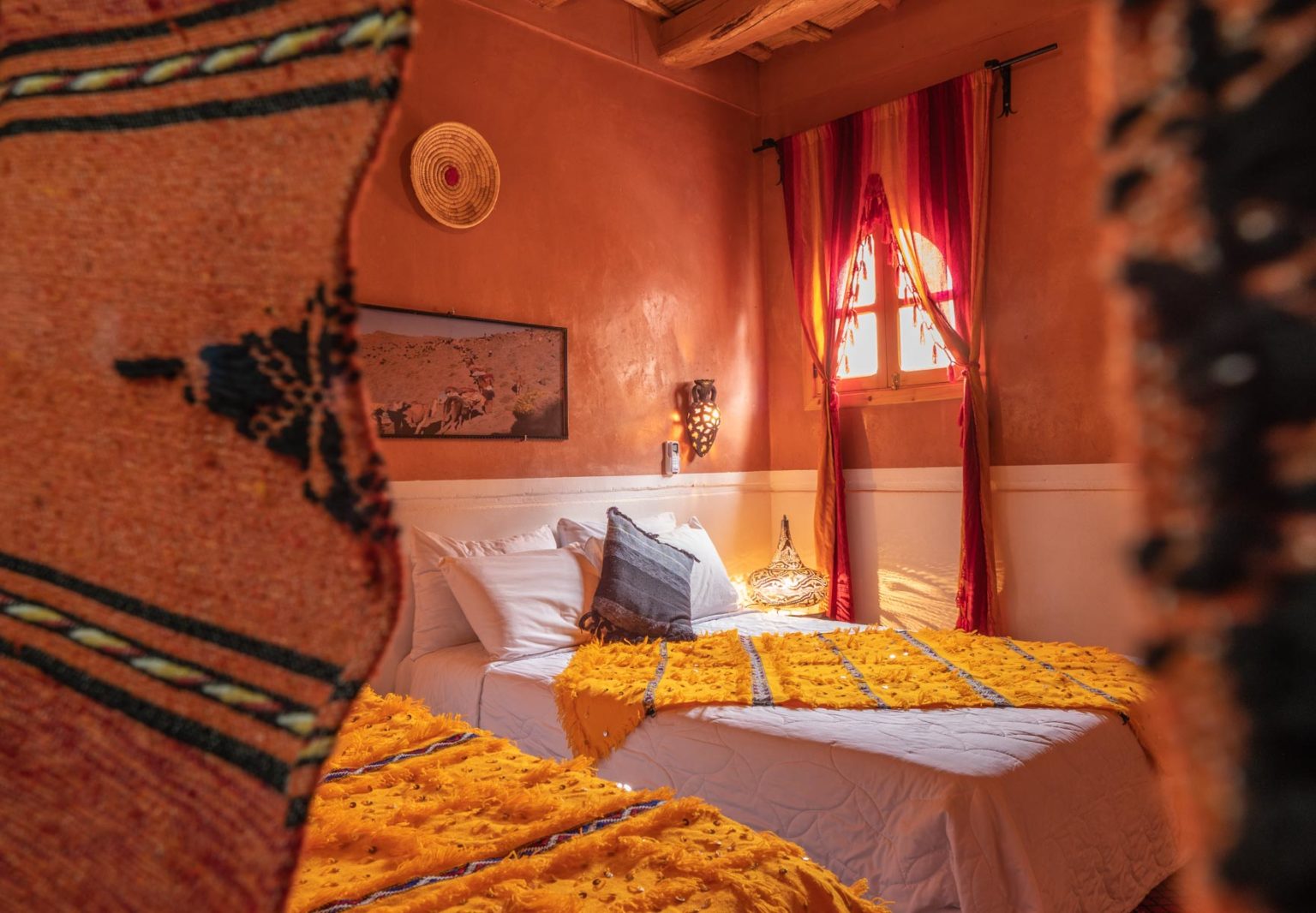
Frequently Asked Questions
1. What are Traditional Berber Markets?
Traditional Berber Markets are vibrant marketplaces in Morocco where local artisans and traders gather to sell their goods, including handmade crafts, textiles, spices, and more.
2. When and where do Traditional Berber Markets take place?
These markets usually take place in rural areas of Morocco, such as small villages or towns, and are often held on specific days of the week, offering a unique glimpse into traditional Berber culture.
3. What can I buy at a Traditional Berber Market?
Visitors can purchase a wide range of items at these markets, including handwoven rugs, pottery, spices, leather goods, and traditional clothing that reflect the rich cultural heritage of the Berber people.
4. Are prices negotiable at Traditional Berber Markets?
Yes, bargaining is a common practice at these markets, so don’t hesitate to haggle with the sellers to get the best price for the items you’re interested in.
5. How can I get to a Traditional Berber Market?
Most markets are accessible by public transportation or organized tours from major cities like Marrakech or Fez, providing an opportunity for visitors to experience the local culture.
6. Is it safe to shop at Traditional Berber Markets?
Generally, these markets are safe for visitors, but it’s always important to exercise caution and be aware of your surroundings, especially when carrying valuables.
7. Can I sample local cuisine at Traditional Berber Markets?
Absolutely! Many markets offer a variety of traditional Berber dishes and snacks for visitors to try, providing a delicious culinary experience.
8. Are credit cards accepted at Traditional Berber Markets?
It’s advisable to carry cash when visiting these markets, as credit card acceptance may be limited. ATMs are usually available in nearby towns for convenience.
9. What should I wear when visiting a Traditional Berber Market?
Comfortable clothing and shoes are recommended, especially if you plan to explore the market on foot. Additionally, consider wearing sunscreen and a hat to protect yourself from the sun.
10. Can I take photographs at Traditional Berber Markets?
While photography is generally allowed, it’s courteous to ask for permission before taking pictures of people or their goods out of
